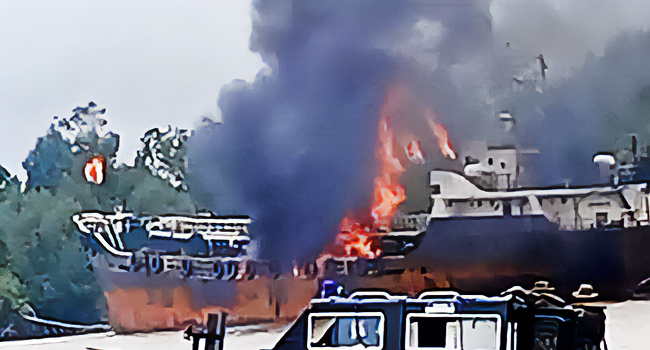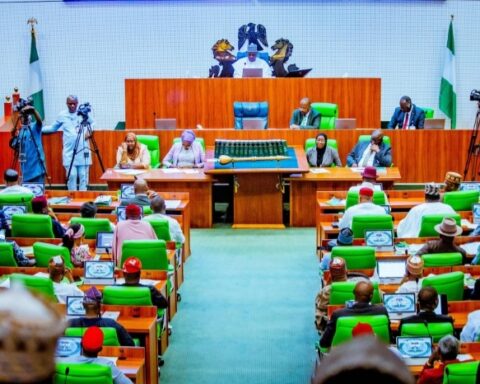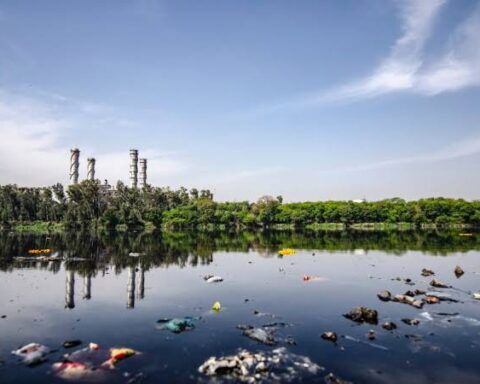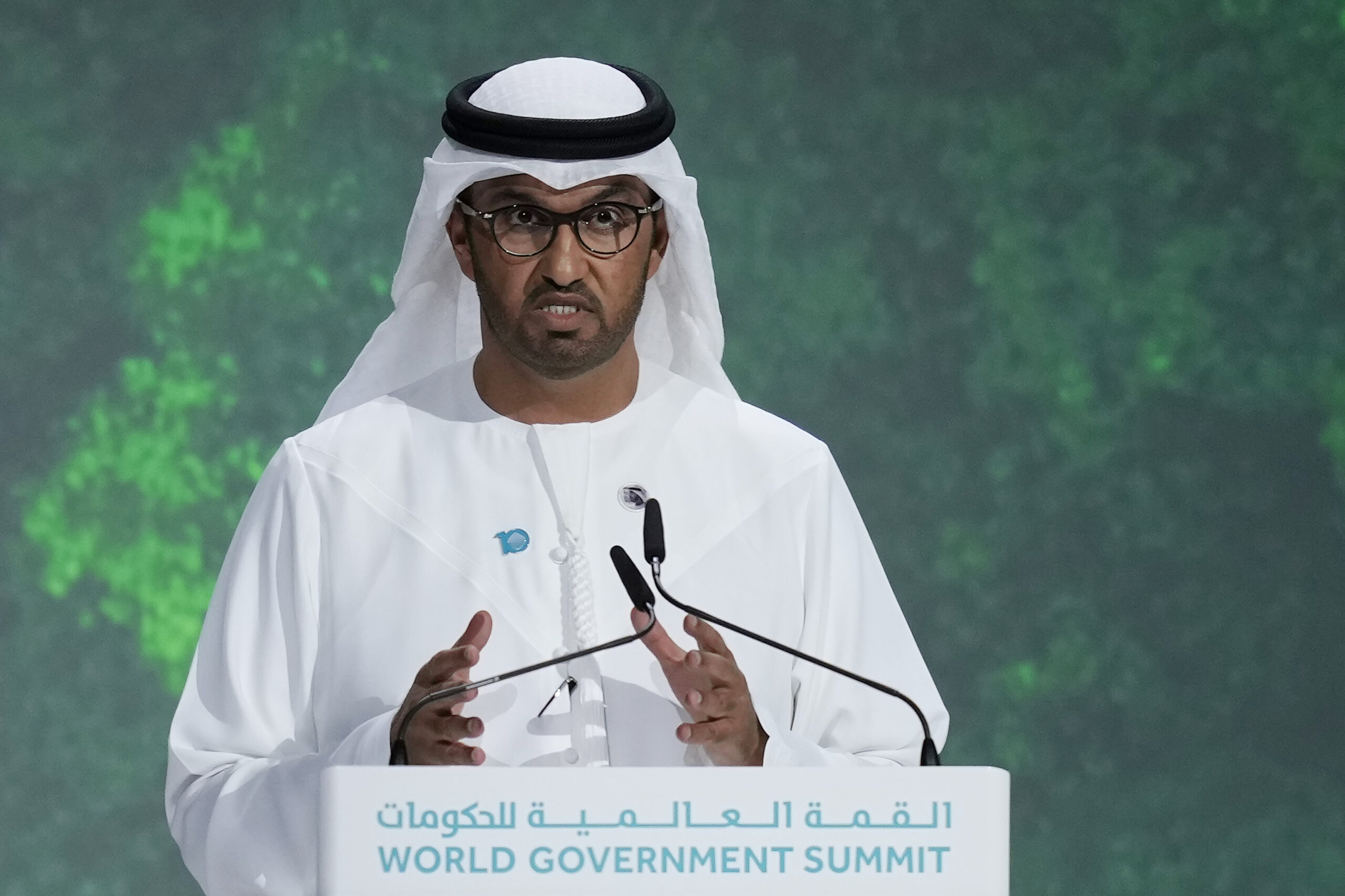The Health of Mother Earth Foundation (HOMEF) has condemned the recent destruction of a vessel containing stolen crude oil, saying that the act could lead to “unacceptable environmental pollution”.
The tanker, identified as the Tura II (ex-name Ali Riza Bey, IMO 6620462), was captured in an offshore location by the Nigeran Navy with stolen crude oil after the vessel was seized and the crew detained, the vessel was reportedly destroyed by a military helicopter.
Executive Director of HOMEF, Nnimmo Bassey, in reaction to the incident, noted that while the Niger Delta burns on account of gas flaring, oil spills, and other forms of pollution, the burning of seized oil vessels is adding insult to injury.
He raised concerns over what it terms a disregard for the environment and human lives, considering the manner the vessel was destroyed with no attempt to comply with international best practices.
Bassey added that the incident also confirmed the fact that Nigeria does not know the amount of crude oil that leaves the shores of the country daily.
According to him, “After setting the vessel ablaze, the Joint Task Force stated that the destruction of the vessel would send a warning signal to those involved in oil theft and incentivize them to desist from it.
“HOMEF believes the significance of the bombing of the vessel is the indication to the people that authorities care little about their safety and that of the environment.”
“The drama that unfolded regarding the seized and bombed vessel is extremely disturbing. Destroying a vessel loaded with 800,000 barrels of crude oil should be taken as a new low in the demonstration of wastefulness on the part of those who should be watching over the nation’s resources. The entire episode requires urgent investigation.
“Why would anyone blow up a vessel and dump 800,000 barrels of oil into the environment? If that volume of crude is correct, this must be one of the largest volumes of crude oil spilled in one incident.
“Our security men are often seen protecting pollution such as gas flares and rotten pipelines and stripping communities of their dignity. In this incident they have demonstrated utter disregard for our constitutional right to a safe environment,” he said.
Bassey who noted that one drop of crude oil contaminates 25 liters of water, imagined what 800,000 barrels of crude oil would do.
“It means the destruction of fisheries and of livelihoods. It also means directly poisoning our people. It is shocking and unacceptable. The entire thing seems to have been staged for some unknown purpose.
“How can security agents bomb a crude oil-loaded vessel with Nigerians watching and filming as if they were being entertained? Oil theft is a crime. Blowing up a vessel loaded with crude oil is a higher order of malfeasance. The security forces need some training on environmental and climate crises.
What has played out is sickening on many levels. Economic waste. Ecological assault. Security cannot be a valid reason for blowing up the vessel. We need to know why this was done. And urgently too,” he said.
Bassey said considering the impact that the destruction will have on the marine ecosystem and the contribution to the pollution that has plagued the region, government agencies must adopt safe ways of handling rogue vessels, including ways of putting them out of commission.
“Outright destruction of vessels on the high sea is not environmentally acceptable. It is time for the Joint Task Force to begin to work with environmental experts and those who are genuinely concerned about the environment to protect lives and livelihoods,” he said.
The UNEP report on Ogoni environment and the recently released report on the pollution of Bayelsa Stare should be required reading for our security agencies, NNPC, and all government agencies who should know the dangers of hydrocarbon pollution.
By Dare Akogun








